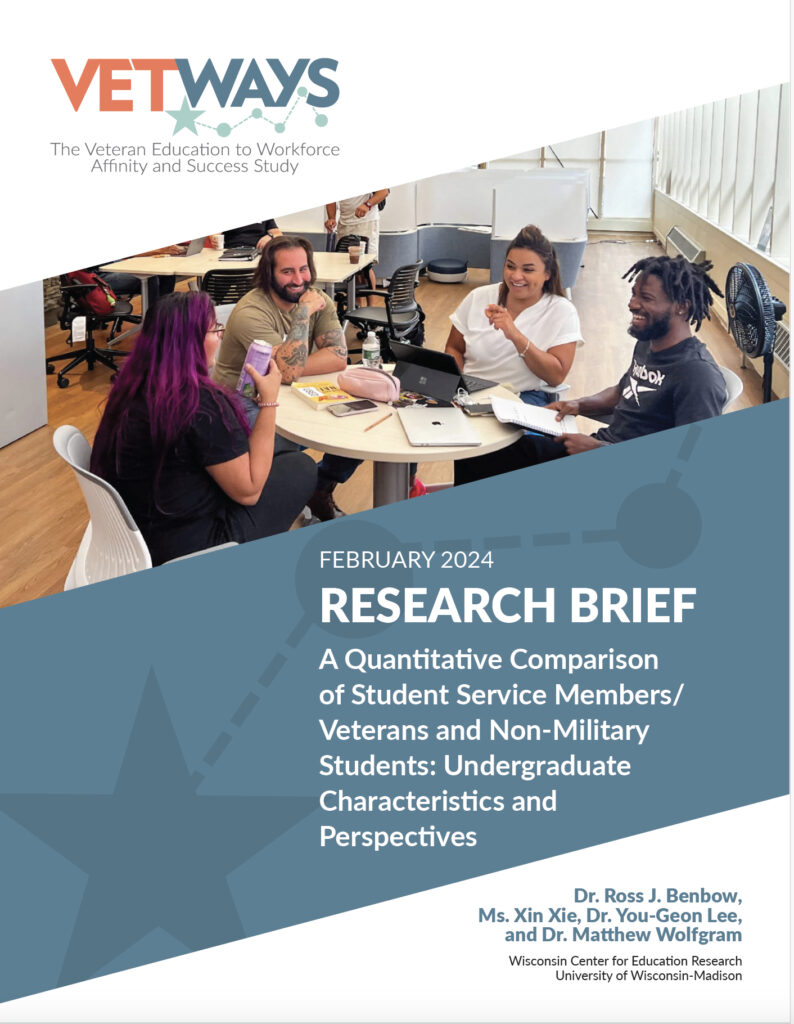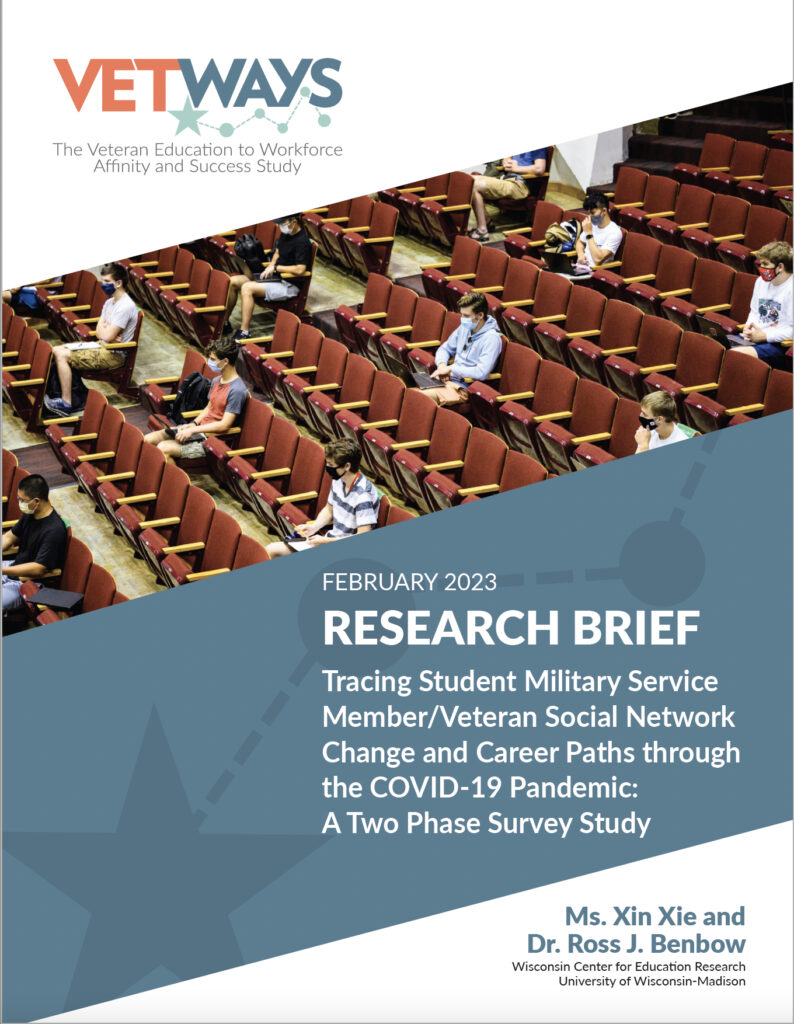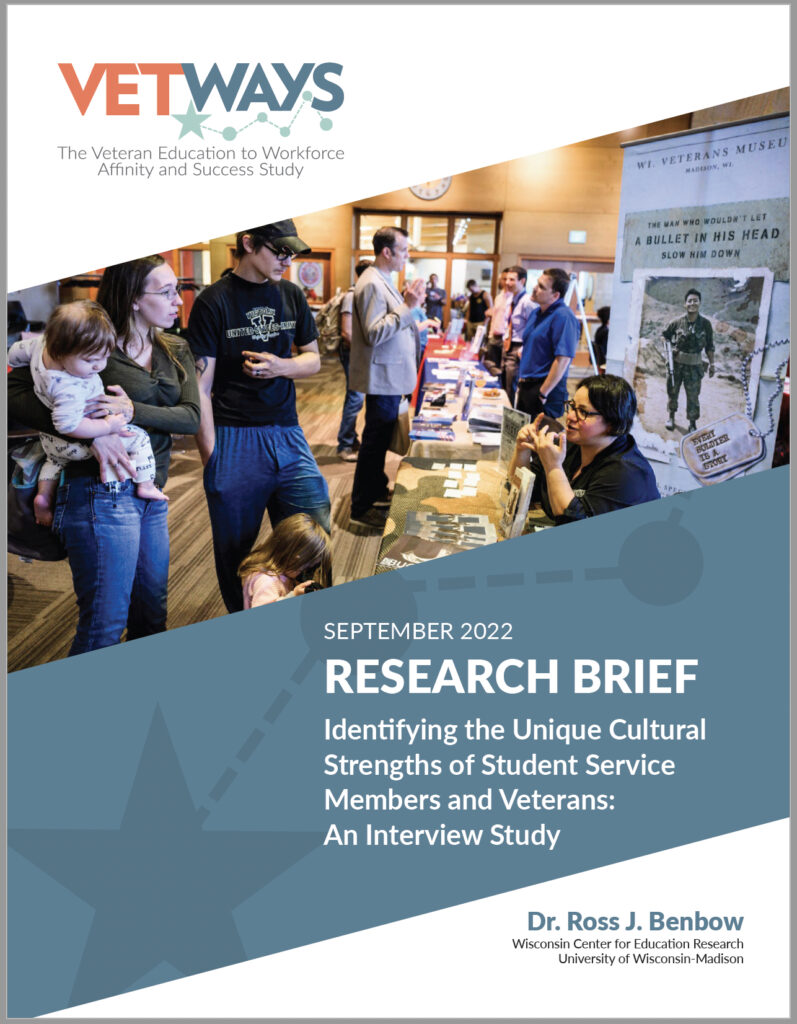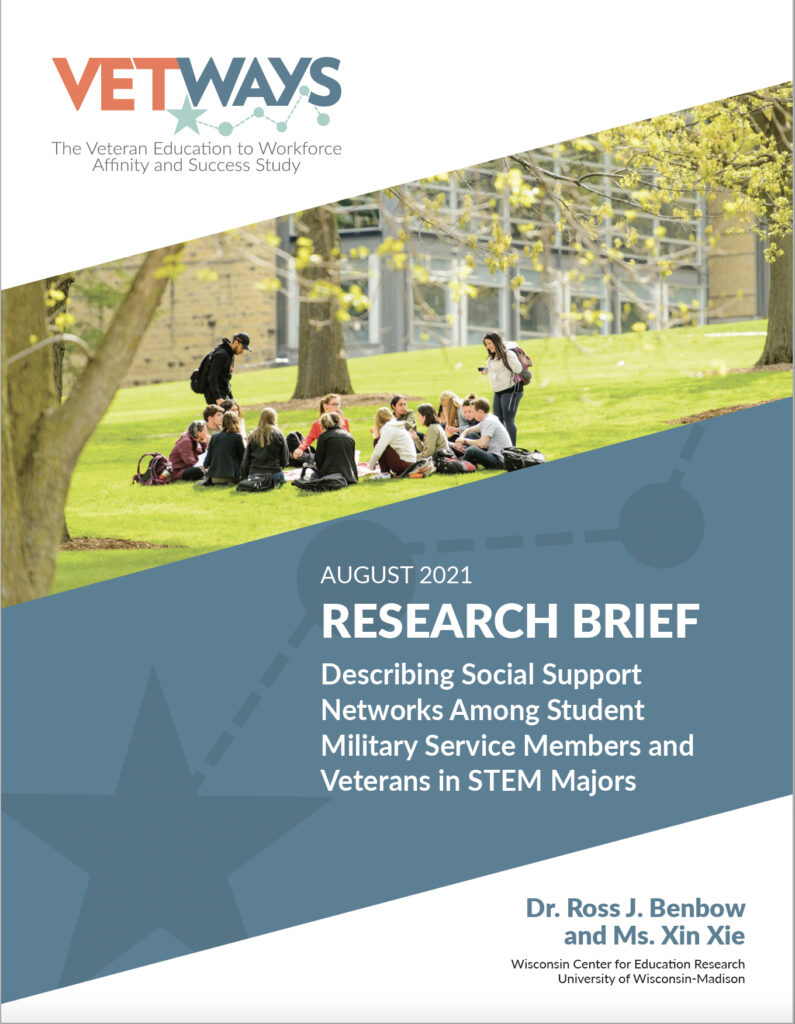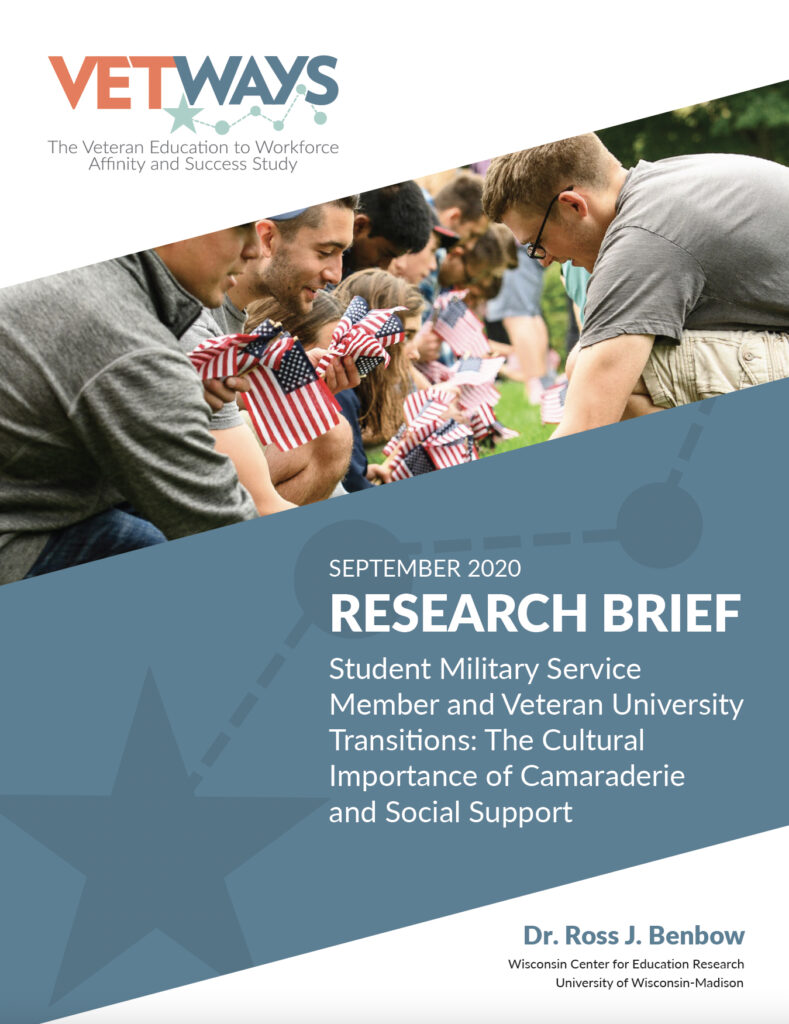Benbow, R. J., Xie, X., Lee, Y-G., & Wolfgram, M. (February, 2024). A quantitative comparison of student service members/veterans and non-military students: Undergraduate characteristics and perspectives [Research Brief]. The Veteran Education to Workforce Affinity and Success Study (VETWAYS): University of Wisconsin-Madison.
Summary: Supported by significant public spending and often with multiple identities that diversify universities, student service member/veteran (SSM/V) success in higher education is critical. Still, more quantitative evidence is needed to better understand how SSM/V university experiences are unique compared to those of their adult, non-military student peers. Using survey data (n=1,255) and field theory, this research brief focuses on how military experience associates with undergraduate characteristics and perspectives linked to postsecondary academic success. After controlling for age and other important covariates, results indicate that student military experience significantly correlates with first-generation status; lower high school but higher college grades; higher work volition; student disability; less financial stress; and decreased feelings of campus and academic major belonging.
Xie, X. & Benbow, R. J. (February, 2023). Tracing student military service member/veteran social network change and career paths through the COVID-19 pandemic: A two phase survey study [Research Brief]. The Veteran Education to Workforce Affinity and Success Study (VETWAYS): University of Wisconsin-Madison.
Summary: Given the importance of social support networks to SSM/Vs as well as the disruption of the COVID-19 pandemic, this research brief uses data from two surveys of a panel of SSM/Vs (n=375) to explore correlations between pre-pandemic social support networks and negative academic or career impacts of the pandemic. It also studies how social support network change through the pandemic—including the addition, loss, and/or replacement of social ties between the spring of 2020 (Time 1) and the late fall of 2021 (Time 2)—might be associated with negative impacts. Findings indicate that SSM/Vs with more campus social ties felt the sting of campus closures more than SSM/Vs without such ties. Results also suggest that SSM/Vs with higher network turnover through the pandemic—including the addition, loss, and/or replacement of core network ties—had more negative pandemic-related academic and career impacts.
Benbow, R. J. (September, 2022). Identifying the unique cultural strengths of student service members and veterans: An interview study [Research Brief]. The Veteran Education to Workforce Affinity and Success Study (VETWAYS): University of Wisconsin-Madison.
Summary: Since the establishment of post-9/11 GI state and federal higher education benefits, student military service members and veterans (SSM/Vs) have been one of the fastest-growing groups of nontraditional students in American universities. Despite their expanded enrollment and potential to diversify university departments and the workforce, discussions on SSM/Vs typically center on psychological trauma, alienation, and other student challenges on campus. A focus on SSM/Vs’ unique cultural strengths, however, may better support these students as they make their way through university and into civilian careers. Using interviews (n=35), this research brief outlines the military-oriented cultural strengths that current and former SSM/Vs associate with their academic and early career success and how these strengths have been useful.
Benbow, R. J. & Xie, X. (August, 2021). Describing social support networks among student military service members and veterans in STEM majors [Research Brief]. The Veteran Education to Workforce Affinity and Success Study (VETWAYS): University of Wisconsin-Madison.
Summary: Equitable workforce development in science, technology, engineering, and mathematics (STEM) fields is increasingly important to national economic prosperity, health, and security. In recent years, student military service members and veterans (SSM/Vs)—a diverse undergraduate population with the technical training and capability to excel in STEM fields—have been one of the fastest-growing groups of nontraditional students in American higher education. Considering the importance of social support networks for STEM majors and SSM/Vs, as demonstrated in past studies, as well as the lack of fundamental research focused on SSM/Vs in STEM, this mixed-method study explores the characteristics and value of social support networks among SSM/Vs in university STEM majors using survey (n=257) and interview (n=44) data. Results show strong SSM/V ties to family and friends, military-affiliated contacts, and significant others, as well as racially homogenous networks. SSM/Vs also describe the importance of bridging perspectives and role-based support that helps them access informational, task-oriented, and affective resources.
Benbow, R. J. (September, 2020). Student military service member and veteran university transitions: The cultural importance of camaraderie and social support [Research Brief]. The Veteran Education to Workforce Affinity and Success Study (VETWAYS): University of Wisconsin-Madison.
Summary: With the establishment of wide-ranging post-9/11 state and federal higher education tuition and living benefits, military service member and veteran enrollment in American colleges and universities has increased exponentially over the last decade. Research examining the difficult transition these students make as they move from the military to the university typically does not position these institutions as separate cultural spheres, however. Using freelisting interview methods (n=54), this qualitative study explores cultural differences between the military and university and how student military service members and veterans believe these differences influence their transitions into college. Results show that students perceive an absence of camaraderie in university life in particular, and that the missing family atmosphere, trust, and deeper relationships of their military experience are an important influence on their university experience.

